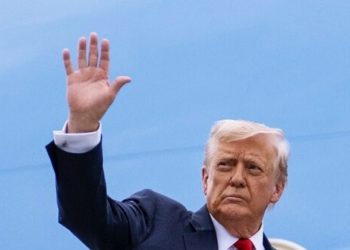When Yelitza Pimental boarded a bus with her husband and four children last November in Caracas, Venezuela, she hoped to start a better life in Colombia.
Pimental’s 11-year-old daughter, Eleanny, has Type 1 diabetes. After struggling to buy insulin in Venezuela due to extreme inflation, Pimental decided to seek better health care for Eleanny in Colombia, where she would be eligible for free insulin shots and doctor’s visits after obtaining legal immigration status. But since U.S. President Donald Trump’s decision to freeze all U.S. foreign aid in late January, the process of receiving a permit to do so has gotten harder.
Pimental is one of many Venezuelan refugees and migrants whose lives have been upended by Trump’s return to office. Intent on shrinking the size of the U.S. federal government, Trump quickly moved to dismantle the U.S. Agency for International Development (USAID), which had been tasked with administering U.S. humanitarian assistance worldwide.
But in Colombia, Trump’s aid freeze is undermining another of his key objectives: keeping migrants away from the U.S. southern border. Venezuelans have made up one of the largest nationalities crossing the southern border in recent years, according to U.S. Customs and Border Protection. Many of them previously lived in South American countries before migrating north and crossing the Darién Gap, a dangerous jungle crossing connecting Colombia and Panama.
According to the International Organization for Migration (IOM), more than 7.89 million migrants have fled Venezuela’s economic, political, and humanitarian crisis. Around 2.8 million Venezuelans—more than 35 percent of the global Venezuelan refugee population—resided in Colombia as of December 2024.
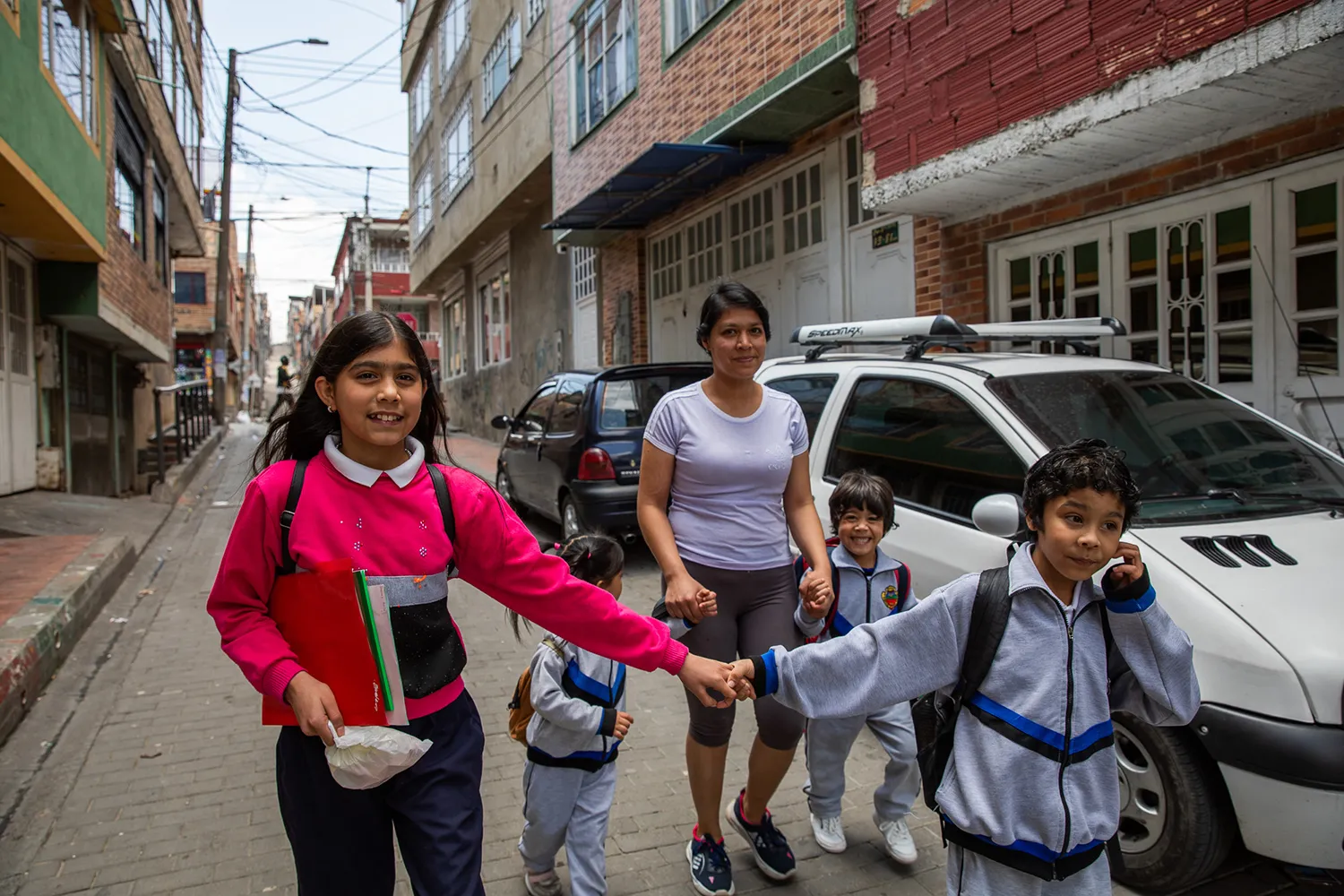
In 2021, Colombia adopted an open-door policy toward Venezuelans, providing migrants with permits that grant them legal immigration status and access to services such as education, health care, housing, and job opportunities. Colombia’s approach has been lauded globally; researchers at the World Bank credit the country with setting positive international standards for migrant integration.
Almost 2 million Venezuelans in Colombia had obtained a Temporary Protection Permit, the document that regularizes their status, as of last December. This widely praised effort has operated thanks in part to support from the United States. Colombia is the largest recipient of U.S. foreign aid in Latin America, and in recent years, it has depended heavily on millions of dollars in U.S. funds to carry out all kinds of official government operations. USAID contracts in Colombia funded at least 60 programs that covered issues including rural development and migrant aid.
Washington has sent more than $958 million to Bogotá to address the Venezuela crisis and to help support Venezuelan migrants, according to the U.S. State Department. The Congressional Research Service wrote that the aid was intended in part to “prevent migrants from abandoning their initial destinations and engaging in secondary migration toward the U.S. Southwest border.”
The money helped Venezuelan migrants and refugees settle in Colombia, paid for emergency food and health assistance, and created new jobs for migrants and refugees. It also aided the Colombian government in processing migrant permits for recent arrivals like Eleanny, who require legal immigration status to register for health care.
But Trump’s aid freeze has gutted the humanitarian and integration programs that support Venezuelans in Colombia. The drop in funding has led to massive staff cuts at nongovernmental organizations across the country, suspending services at clinics along the border. It has even temporarily halted the government’s rollout of migrant permits for recent arrivals, according to four employees at three different international NGOs that support migrants, who spoke to Foreign Policy on the condition of anonymity because they were not authorized to speak to the press.
U.S. assistance for Venezuelan migrants was usually administered by USAID or contributed to international organizations and U.N. agencies. In 2023, Colombia received $389 million through USAID for all the organization’s programs.
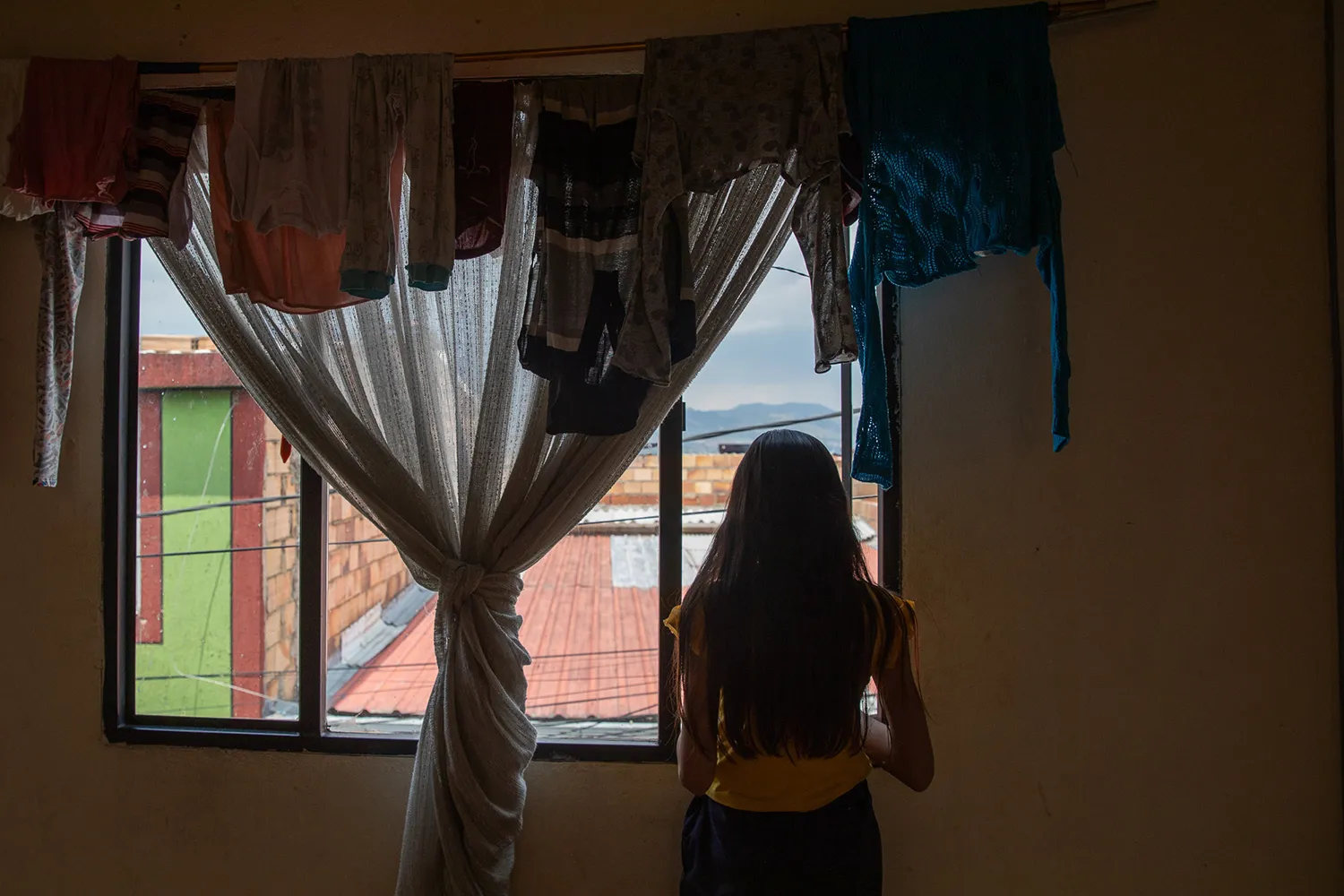
The U.S. government is the primary donor to Latin America’s Venezuelan migrant response plan, according to the Interagency Coordination Platform for Refugees and Migrants of Venezuela, a platform led by the IOM and the U.N. refugee agency. In 2024, the last year for which complete data is available, the platform reported receiving around 88 percent of its funding from the United States for its regional plan, of which Colombia is a primary beneficiary.
The IOM, which received funding from USAID, assists Colombia in the rollout of Temporary Protection Permits. Though the permit program for most Venezuelans ended in 2023, there are some exceptions—including for children who are enrolled in school, like Eleanny. But in the wake of the aid freeze, operations at government-run centers that process permit applications ground to a halt, forcing many to shut down. According to local reports, 186 migration officials whose salaries IOM paid were laid off in February.
In a statement to Foreign Policy, Colombia’s migration agency said it had managed to rehire 92 employees since then and that some registration centers reopened on Feb. 20. The agency said it had shifted its financial priorities to pay their salaries.
The Trump administration has argued that USAID wastes billions of dollars on programs that oppose U.S. interests. Trump has said the agency’s “crazy radical programs” promote “woke” ideology overseas. On March 10, U.S. Secretary of State Marco Rubio, who is serving as USAID’s acting administrator, announced that 83 percent of USAID programs would be cancelled and that the remaining 17 percent would be overseen by the State Department. Later that month, the Trump administration downsized USAID—reducing staff to 15 employees—without shuttering it completely, which would require congressional approval.
In response to questions about the impact of foreign aid cuts on preventing northbound migration, a State Department official told Foreign Policy that it is continuously reviewing foreign assistance programs for efficiency and alignment with Trump’s agenda, “prioritizing efforts to curb illegal immigration to the United States and secure our borders.”
Though the U.S. foreign aid review was supposed to have ended on April 20, the Trump administration expended the deadline for another month.
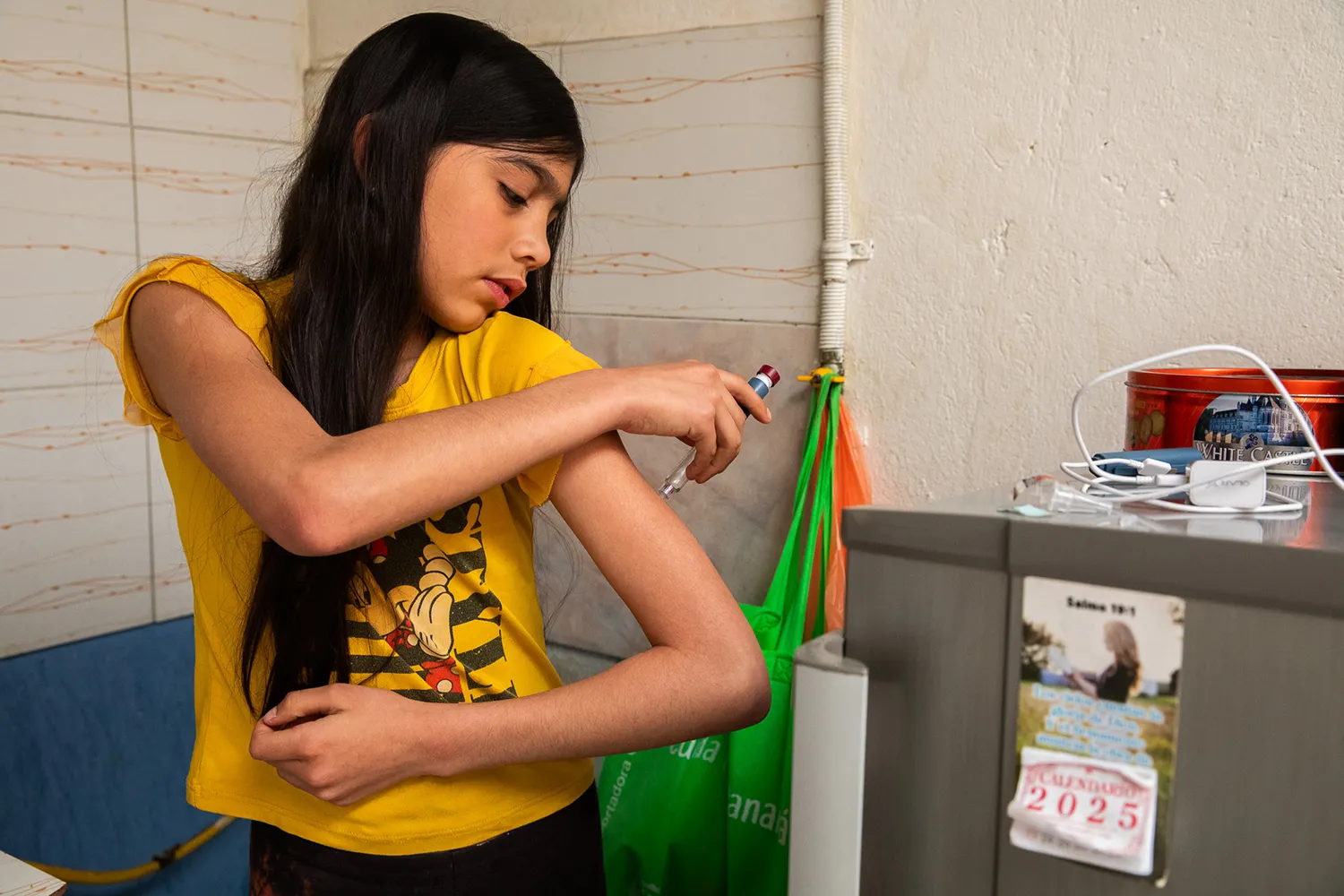
Colombia, meanwhile, has welcomed the aid freeze, sending alarms among migration experts and civil society organizations. During a televised cabinet meeting in February, President Gustavo Petro characterized U.S. foreign aid as “poison” and said Colombian migration officials’ salaries should not depend on foreign assistance. “We’re not going to negotiate for continued aid—that’s not aid. Trump is right, take your money,” Petro said.
But critics argue that the void left by U.S. aid cuts is not easy to fill. Maria Clara Robayo, a researcher at Rosario University’s Venezuela Observatory in Bogotá, warned that Colombia’s financing alternatives were limited. Last year, the country was forced to cut government spending and is incapable of responding to the migration crisis on its own, she said.
“There’s going to be a large gap in the capacity of institutions to respond to the most vulnerable and invisible populations,” Robayo said.
Experts warn that all this could lead to renewed migration, though it’s hard to say whether Venezuelans will choose to migrate to the United States due to the militarization of the U.S.-Mexico border. The U.S. deportation of mostly Venezuelan migrants to El Salvador—where they are being held without due process in a maximum security prison—has led some Venezuelans to fear migrating to the United States.
According to the latest study published by the Colombian census bureau last October, around 80 percent of Venezuelan migrants and refugees planned to stay in Colombia in 2025—but about 14 percent remained undecided. Though just 1 percent said they would definitely leave the country, reduced support could create a new reason for migrants to seek a better life elsewhere, said Laura Cristina Dib, the director of the Venezuela program at the Washington Office on Latin America.
“We’re going to see more people leaving Colombia,” Dib said, “because if there aren’t resources to integrate the population, then how do they stay?”
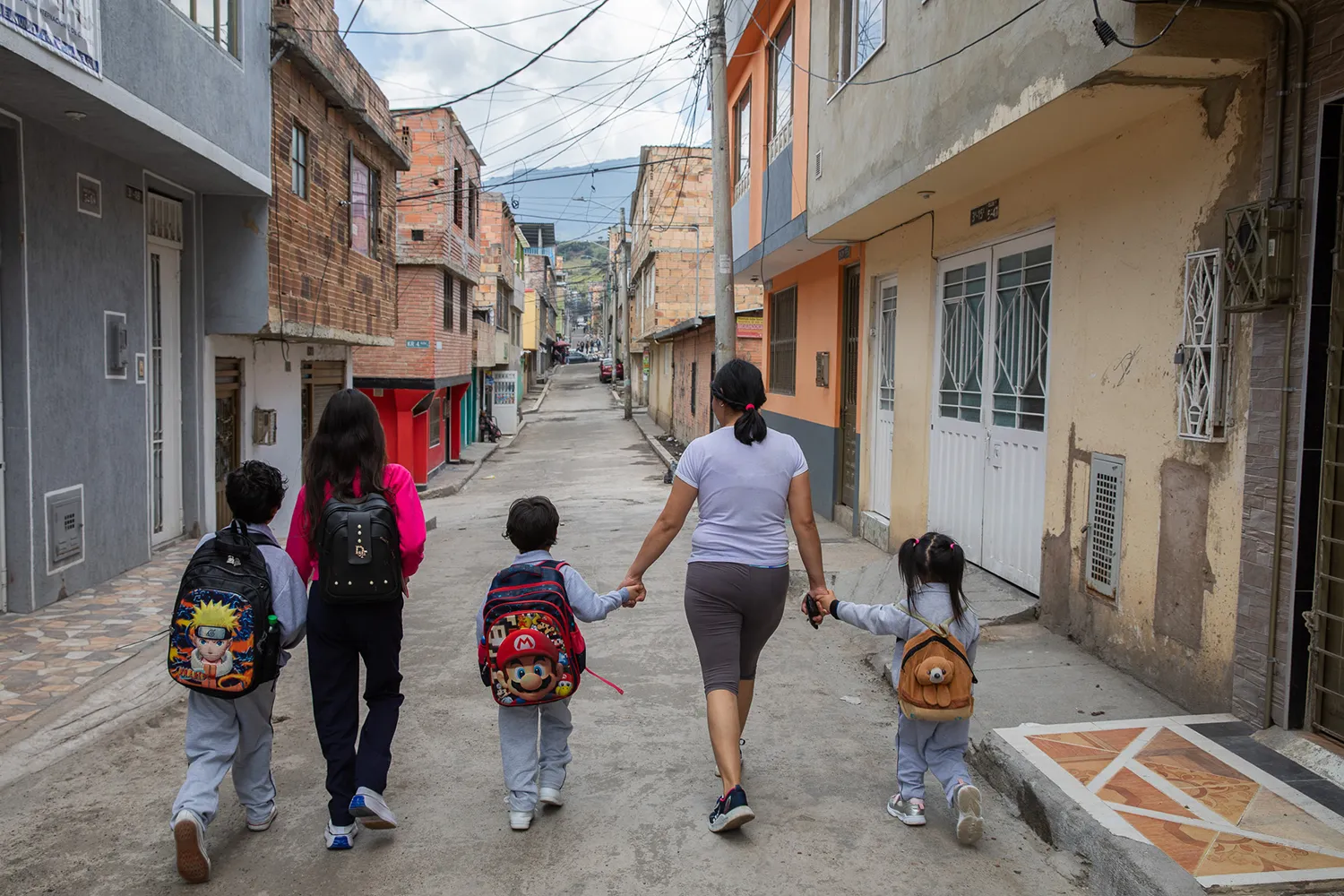
Pimental is still unsure what Trump’s aid freeze means for her family’s future. In January, she applied for a Temporary Protection Permit for her four children, which provides them with legal immigration status and basic services, such as health care. As adults, Pimental and her husband are not eligible for the permit.
The application process would have normally lasted three months, but due to the closures of registration centers, Pimental said she has been told that it is unclear when her children will be granted permits. That leaves Eleanny unable to register for public health care or receive subsidized medication.
During an emergency hospital visit in January—before Trump’s inauguration—that was covered by IOM funding, Pimental said doctors described Eleanny as a “ticking time bomb” if she didn’t keep her diabetes under control. The IOM has since had to cut its services, leaving Pimental to manage Eleanny’s diabetes on her own.
One day in March, Eleanny started her morning by checking her blood sugar level. The test result that flashed on the glucometer screen surpassed the normal threshold for a child her age, so Eleanny grabbed her insulin pen and poked her arm with nine units of the hormone. Her mother observed with concern the number of doses left—estimating that the remaining two pens would last Eleanny another 25 days.
Pimental has braced herself for the worst. She continues to prepare every one of Eleanny’s meals according to her dietary needs but has begun to slash spending on food for her other three children. Her husband also works longer hours at a construction company to try to save enough to buy a box of five insulin pens, which costs $60.
“My husband has begun to say that we should return to Venezuela if things don’t get better,” Pimental said. “We don’t have anything or anyone here.”
The post Trump’s Aid Freeze Is Undermining His Immigration Policy appeared first on Foreign Policy.




